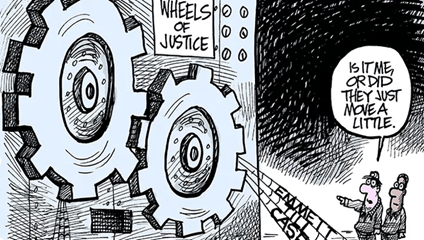Friends of Branded:
Happy Saturday and I hope you had a great week.
Back in 2010, the number one movie was Toy Story 3 (yes, I cried at the end of that film), Kesha topped the Billboard Year-end Hot 100 chart with her song, Tik Tok (yes, I danced to that song) and Branded Restaurants had a small, but mighty (fun) portfolio of restaurants in New York City, including our Duke’s Original Roadhouse and Big Daddy’s Diner.

At one of Schatzy’s longstanding weekly Tuesday night dinners (which back in 2010 I attended about once a month), he told me how the OG of 3rd party delivery companies, SeamlessWeb, had registered URLs that closely resembled the names of our joints in order to acquire our customers.
In essence, customers that were searching for our restaurants to place food orders directly with us, might get confused by the similarity of the names and place their order on the SeamlessWeb platform instead. All is fair in love & war, but to Schatzy, this seemed like an act of betrayal particularly b/c Branded Restaurants had been one of the earliest adopters of Seamless when it launched in New York City back in December 1999.
SeamlessWeb was initially a business-to-business service focused on online food ordering for corporate clients. When I was first introduced to the company, SeamlessWeb was viewed as an accounting solution by the investment bank I was working at and was embraced to bring order to the chaos that was evening and weekend meals for the team working these off-hours by creating a platform that could more easily track orders and assign them to specific accounts and clients. To engage with SeamlessWeb, a restaurant only needed to have a fax machine, pay a 5% commission on orders, and execute self-delivery (these were simpler times back in 2010). 😊
Schatzy’s response to SeamlessWeb’s adverse actions to our restaurants led him to call his sales rep at the company and politely (maybe) ask them to stop doing that.

Seamless vs Schatzy
In 2018, Grubhub, the company that acquired Seamless, stated that it discontinued the practice of creating these microsites for restaurants.
In 2020, restaurants filed a class-action lawsuit against the company over the unauthorized listings.
In 2025, the company settled the case for $7.2mm and resolved the false advertising lawsuit (Branded Restaurants was not part of the lawsuit in any way).
On Thursday afternoon this week, I received an e-mail from an angry operator about how a catering software company, ezCater, was presenting alternative restaurant options to its customers. With some level of sympathy, I explained that this practice isn’t uncommon, and in fact it’s pretty standard for online platforms, that serve many vendors, to serve its own interests by doing exactly that.
Don’t hate the players, hate the game.
The operator expressed anger that ezCater was becoming more aggressive with its tactics to pull customers away from his venue by pushing alternatives. Maybe he took a page out of Schatzy’s playbook and placed a (polite) call to his sales rep.
It’s a dog-eat-dog world, and for so many restaurant operators, it may often feel like they’re wearing milk bone underwear (with attribution to Norm Peterson, from Cheers for that comment).

When Branded says it’s an operator-centric investor, we mean we support ResTech companies that are on the side of operators. None of this preamble is to throw shade at any company, and to be crystal clear, I’m a free markets person. Companies can and should do what’s in its best interest.
The key point for operators is the need to go out of their way and be intentional about aligning themselves with technology companies that are succeeding when the operator succeeds and to be weary or concerned if the tech vendor benefits when an operator’s margins are squeezed.
Simply put, it’s important to choose wisely!
For example, I can’t tell you (but I’m going to try), how many ResTech platforms have pitched their discounting strategy to help operators fill empty seats.
As operators, we hate discounting. Don’t get me wrong, we love rewarding loyalty, but a strategy to fill seats via discounts opens up a pandora’s box of risks including allowing these coupon-shopping guests a better deal at your joint than your most loyal guests. Sometimes an empty seat is better than a money losing one. Sometimes you don’t want the guest that will only dine in your joint for a discount.
In any relationship, alignment of interests is paramount and as operators continue to evaluate their respective tech-stacks and consider where to leverage technology (in an industry that is first and foremost about people, experiences, and food & beverage), choosing operator-first vendors is critical for your business.
That of course, like most things, is easier said than done (and let’s face it, far too often, more is said than in fact done). There are a lot of shiny objects out there and talented salespeople that over-promise and under-deliver.

So, when it comes to selecting technology that will actually deliver a solution to a material challenge, opportunity, or problem (as opposed to a solution that is in search of a challenge, opportunity, or problem), operators should leverage its own internal checklist and specifically ask how aligned the vendor’s success with the operator’s success is.
While this is important for all restaurants, it’s of particular importance for independent restaurants and SMBs b/c they too deserve technology that serves them, but similar to how the largest restaurant groups garner bulk discounts and best pricing as a result of the magnitude of their orders, that’s what’s happening in the world of technology as well.
At the start of this week’s Top of the Fold, I pointed out the practices of a 3PD and a catering company that adversely impacts restaurants, but the importance of evaluating technology for your business isn’t limited to identifying potentially deceitful practices. It’s about the need to align with your vendors, and ideally thinking of them as your partners. You want tech vendors that are aligned to help you monetize your brand and your guest, not ones whose growth strategy depends on their monetizing your brand and guest relationships.
Operators must know their own business, and I don’t propose that there is a single checklist that will help identify operator-first and operator-centric technology companies. There are a few themes that I see that help separate technology vendors that are in fact on the side of operators from those that are wolves in sheep’s clothing.

When Branded is evaluating a technology company, nothing is more important than seeing that it was built for the realities of the restaurant operation. Tech that understands the workflow and has been engineered to reduce or eliminate as much friction as possible. We value transparent pricing, the ownership of the guest data & belonging to the operators, ease of on-boarding, and on-going support. We want to see tech that is addressing real-world issues such as labor, guest management & expectations, menu changes, and supply chain issues. The just-in-time DNA of the restaurant business doesn’t leave room for shiny objects or nice-to-haves.
We love to see case-studies that make clear, for example, the hours saved, waste reduced, and check averages increased. We want to see an overall demonstration of a return on investment for the benefit of the operators. We of course want to see the potential ROI on the investment, but first tell us how you’re going to be an ally to operators. Don’t tell me you have a billion dollar company, tell me first what problem you’re solving for operators.
It’s not hard to find a list of notable lawsuits that show technology companies working against restaurants, but the wheels of justice move slowly. Restaurant operators can’t depend on the legal system to protect themselves from less than honorable technologists. I’ll go further and say that a tech vendor doesn’t remotely even need to cheat to be adverse to an operator.

Branded and the community we run with, take a rather simple position that if operators don’t win, we don’t have much of a business (or industry for that matter). Failing restaurants don’t engage with ResTech companies. They don’t buy food & beverages from distributors or take down real estate and sign leases. They don’t buy linens, flatware, or kitchen equipment.
Disintermediating restaurants is akin to killing the goose that lays the golden eggs. The entire hospitality industry supply chain loses its economic engine if restaurants fail. Restaurants are the anchor upon which dozens of adjacent industries depend and if restaurants don’t win, every upstream and downstream participant loses demand.
Branded’s operator-centric ethos isn’t a nice thing that we’re doing, it’s about ecosystem resilience and even survival. Extracting margins from operators damages the foundation on which our industry is built and while there might be short-term wins from such disintermediation, it comes with high risks.
We look for symbiotic relationships and models where technology companies win by amplifying the success of operators rather than competing it.
Restaurants are the nucleus of the hospitality universe. If you disintermediate the operator, you destabilize the orbit of every business that depends on them. In the long run, no one wins when the restaurant loses.
It takes a village.


Humanly—a Branded Hospitality Ventures investment company—just announced the acquisition of Sprockets, Qualifi, and HourWork, bringing together three category leaders to create a true end-to-end conversational AI hiring platform.
This powerful move unites the best in candidate engagement, interview automation, and retention analytics, delivering a seamless solution that helps operators attract, hire, and keep top talent faster and smarter than ever before.
Huge congratulations to Prem Kumar and the Humanly team, AJ Richichi and the Sprockets crew, and all our friends across the industry who know how vital tech innovation is in tackling today’s workforce challenges.
This is a game-changing milestone for the hospitality space—and a sign of how AI continues to reshape how we hire, connect, and grow.
👉 Read the full announcement here.

Copia is transforming food waste into a profitable, scalable solution – They are quickly becoming the standard for surplus food recovery.
CEO Kimberly Smith is a 20-year veteran in data and analytics who’s leading Copia to reshape how businesses donate food while unlocking real ROI, ESG wins, and tax savings.
The company’s impact is undeniable:
🥧 Trusted by national brands like The Cheesecake Factory and Ritz-Carlton.
🚚 Flexible logistics powered through partnerships, like DoorDash.
🌍 Operating across 43+ states, Canada, and Puerto Rico with hundreds of customers and ~1,000 locations.
💧 Every quarter, Copia helps save over 392,000 pounds of food, divert 1.2M+ pounds of CO₂, and conserve 90M+ gallons of water.
💡 A seamless platform with a 99.5% donation success rate and 95% customer retention.
Copia is experiencing strong momentum with a robust pipeline of enterprise partnerships, making this an exciting time to invest as the company accelerates into its next stage of growth.
This is your chance to back a company driving measurable impact for people, planet, and profit.
Interested in learning more? Reach out right here.

Bill Murray
Don’t just scroll—click! Congratulate everyone on making the B List and send some LinkedIn love their way.


